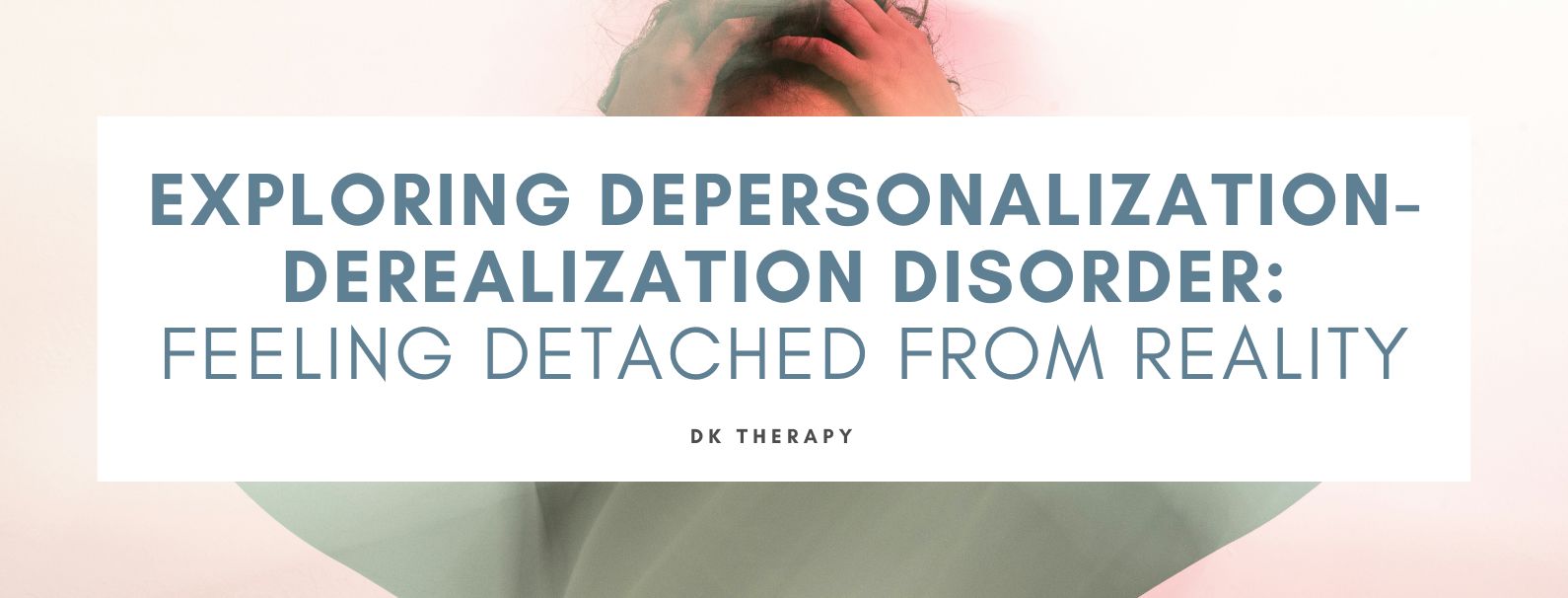
Have you ever felt as though you were watching your own body move through the day from outside yourself? Or perhaps the world around you felt unreal or distorted in some way. These unsettling experiences are characteristics of Depersonalization-Derealization Disorder (DPDR), which affects a person’s sense of self and reality.
Though temporary episodes of depersonalization or derealization are not uncommon, DPDR is a persistent and stressful condition that can greatly impact daily life.
Understanding Depersonalization and Derealization
 DPDR consists of two key components: depersonalization and derealization. Though these effects often occur together, they are distinct experiences.
DPDR consists of two key components: depersonalization and derealization. Though these effects often occur together, they are distinct experiences.
Depersonalization refers to a feeling of detachment from oneself. Individuals may feel as though they are outside their bodies, observing their thoughts, emotions, and actions from a distance. They might feel numb, robotic, or disconnected from their own identity and physical body.
Derealization, on the other hand, involves a distorted perception of the world. People experiencing derealization often describe their surroundings as foggy, dreamlike, or artificial. People and objects may seem distant, unfamiliar, strangely shaped, or lacking in significance.
Causes and Triggers of Depersonalization-Derealization Disorder
The exact cause of DPDR is not entirely understood, but it’s often linked to extreme stress, trauma, or anxiety. Some common triggers include:
- Childhood Trauma: Abuse, neglect, or witnessing traumatic events can contribute to dissociative symptoms.
- Severe Stress or Anxiety: High anxiety, especially when it comes with panic attacks, can trigger depersonalization and derealization episodes.
- Substance Use: Certain drugs, such as hallucinogens can induce symptoms of DPDR, which sometimes last after the effects of the substance have worn off.
- Neurological and Psychological Factors: Research suggests that DPDR may be linked to abnormalities in brain function, especially when it comes to perception, emotional regulation, and self-awareness.
Symptoms and Diagnosis
DPDR symptoms can be chronic or episodic, and they vary in intensity. Some of the most common signs include:
- Feeling emotionally or physically numb
- Perceiving one’s body, thoughts, or actions as unreal
- Experiencing distortions in sensory perception (e.g., sounds feeling too loud or distant)
- Feeling disconnected from surroundings, as if in a fog or dream
- Difficulty recognizing oneself in the mirror or feeling estranged from one’s reflection
This type of diagnosis is typically made by a mental health professional after ruling out other medical or psychiatric conditions. This is because seizures, brain injuries, or other disorders like schizophrenia can induce similar symptoms.
Coping Strategies and Treatment Options for Depersonalization-Derealization Disorder
DPDR can be distressing to live with, but various treatment options can help individuals regain a sense of reality and connection.
- Psychotherapy: Cognitive Behavioral Therapy (CBT) is often used to address DPDR by addressing distorted thoughts and reducing anxiety. Grounding techniques are also utilized to help individuals stay present in their environment.
- Medication: Although there is no specific drug approved for DPDR, medications like antidepressants or anti-anxiety drugs may help reduce symptoms, especially if DPDR is associated with anxiety or depression.
- Mindfulness and Grounding Techniques: Taking part in activities that inspire sensory awareness, such as deep breathing and meditation, can help individuals stay connected with themselves and their surroundings.
- Reducing Stress and Avoiding Triggers: Identifying and reducing stressors, maintaining a balanced lifestyle, and avoiding substances that may trigger symptoms can play a key role in managing DPDR.
Depersonalization-Derealization Disorder can be a frightening and disorienting experience, but with proper support and coping strategies, individuals can find relief and regain a sense of stability in life.
If you or someone you know is struggling with DPDR, seeking professional help is an essential step toward recovery. Reach out to DK Therapy at your convenience and schedule an appointment with our office.




